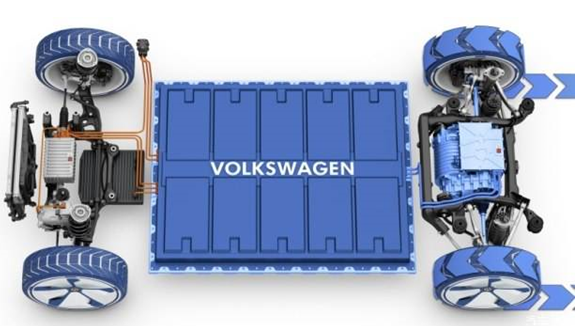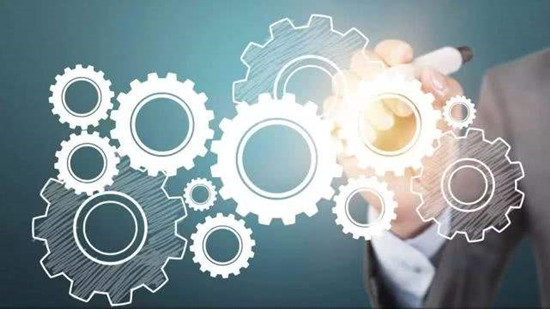Solid state lithium ion battery
Jun 28, 2019 Pageview:1045
Lithium-ion batteries have been a breath of fresh air in the industry. They have replaced lead-acid batteries which had once ruled the various devices and applications. Compared to other options, lithium-ion batteries are much safer and better in performance. They have extended battery capacity and density.
Even though lithium-ion batteries have delivered an array of advantages and have become the best option for rechargeable cell for various gadgets and phones, there are certain limitations to the battery. Lithium-ion batteries are known to have limited lifespans and power density.
While many might have thought that innovation would have ended with the invention of lithium-ion batteries, this has not been the case. Researchers have managed to further perfect lithium-ion batteries by creating solid-state lithium-ion batteries.
Solid state lithium ion battery definition
Solid state lithium-ion battery makes use of solid electrodes as well as a solid electrolyte. This is quite different from the usual lithium ion batteries that rely on liquid electrolytes. One of the problems of using solid electrolyte is stability.
Recently, research was conducted, which was able to find a method via which the solid electrolyte could be stabilized in the lithium metal. It used boron nitride with nano-coating to deliver batteries that have a charge capacity which is ten times that of graphite-based lithium ion batteries. Moreover, the electrolyte used is made of ceramic. This electrolyte is non-flammable, unlike the liquid electrolyte. This further helps in reducing safety concerns.
Material used
In most cases, the cell chemistry of a solid state cell is similar to that of a liquid electrolyte cell. The material used in anode includes titanates, carbon, Li-alloys, and/or metallic lithium. There can be various materials that can be used for cathodes. This includes Li-based oxides, vanadium oxide, phosphate, and other microstructural material. The electrolyte can have conducting salts like [LiCF3SO2)2N] (LiTFSI). When ceramic electrolytes are used, LiPON, Li2S-P2S5, and Li10GeP2S12 are possible options.
Solid state lithium-ion battery energy density
Solid state lithium-ion batteries feature a high energy density. Currently, the lithium-ion batteries being produced in the solid state are small in size. The highest density that solid-state batteries have managed to reach is over 1000 Wh. More than 20 companies worldwide have managed to manufacture such high energy density batteries. This includes LARGE Power as well.
Polymer electrolytes, mainly PEO with conducting salts such as [LiCF3SO2)2N] (LiTFSI) is used. As ceramic electrolytes, especially LiPON, Li10GeP2S12, or Li2S-P2S5 are possible.
Solid state lithium-ion battery applications
The application for solid-state lithium-ion batteries is the same as that of liquid ion batteries. Some of the popular uses include the following:
Smartphones
Smartphones require small and rechargeable batteries. This is exactly what is offered by lithium-ion batteries. However, while previously such batteries featured limited lifespan and hence required changing, solid-state batteries have better longevity and energy capacity.
Power backups
Compared to conventional generators, UPS and Emergency Power Backup equipment tend to be much more convenient since they provide instant Power in case of a power outage. These equipment are used in computers, medical technology, as well as communication technology. A solid-state lithium-ion battery can be used in them.
Marine motors
Did you know that boats also feature rechargeable engines? Gone are the days when marine boats had to be manually rowed. Now, engines feature rechargeable batteries that power the motors of the boats. Traditionally, lead-acid batteries were used in such motors. Soon, they were replaced by lithium-ion batteries due to the better energy capacity offered. Now, solid-state lithium-ion batteries can further boost the performance of marine motors.
Solar Power Storage
Solar Power is becoming increasingly popular. As more and more people are becoming aware of the negative effects of using fossil fuel to power houses, solar power use is rising. Solar panels also require rechargeable batteries. And lithium-ion batteries are ideal for solar power storage because of such batteries charge very quickly. And this allows you to maximize the per day solar power storage.
Alarm System and Surveillance Equipment
There was a time when the presence of electricity was pivotal to providing security to houses. However, this is not the case anymore. Whether it be monitoring remote perimeters, job sites or fleet of vehicles, modern surveillance and alarm systems are equipped to do it all. And such remote monitoring systems make use of rechargeable lithium-ion batteries. This is because these batteries are small sized, feature long life, and minimal self-discharge. These benefits are also provided by solid-state lithium-ion batteries. And some of these advantages are further maximized because of its solid structure.
Mobility Equipment
Solid state lithium-ion batteries can help power mobility equipment. Electric wheelchair, household devices, stair lifts, and other similar electronic equipment all require rechargeable batteries. And lead-acid or conventional lithium-ion batteries are not fit for such equipment as they require immensely fast charging and a long life span.
Portable Power Packs
Power packs are now a must-have for smartphones. After all, they help in reducing the downtime of your devices. Considering that people can no longer live without their smartphones and similar devices, portable power packs have never been more important.
Portable power packs also need to be powered. And they do so via rechargeable batteries. Solid state lithium-ion batteries can come in handy in this case. Again, fast charging is a pre-requisite in power packs which can be effectively delivered by lithium-ion cells.
Conclusion
Lithium-ion batteries have revolutionized the way modern equipment work. Solid state batteries are a great invention that can further boost the effectiveness of various devices. While the batteries also feature certain drawbacks, when it comes to safety, energy density, and overall performance, solid-state lithium-ion batteries are a nod in the right direction.
You might not even realize it, but lithium-ion batteries are already an important part of life. Even if they are not, it is time you make the switch. Conventional lead-acid batteries can no longer serve modern needs. Switch to lithium-ion batteries and realize the various benefits associated with it.
- Prev Article: Lithium battery types introduction
- Next Article: Dual High Amp 18650 Battery Referral
Leave Message
Hottest Categories
-
Hottest Industry News
-
Latest Industry News













